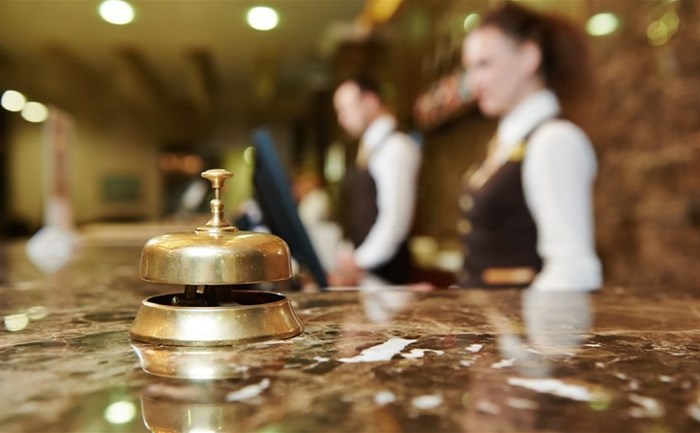5 booking trends for hotels and guesthouses
Keeping a finger on the pulse of emerging booking trends can aid hospitality providers in maximising their marketing campaigns and their guest-focused investments, as well as in optimising their profits.

The dawn of the 'half tourist'
The 'half tourist' is the new buzzword within the industry, according. The term refers to an individual who decides to take a trip to an exciting destination with the intention of splitting his or her time into work-related and leisure activities.
Due to advancements in technology and the way in which we work nowadays, most people can work practically anywhere – as long as they have access to a laptop and a stable internet connection. Some might opt to embrace this newfound freedom to the maximum, opting to work on a warm, sandy beach with the ocean as background noise, as opposed to in their boring office at home.
Numerous business owners are supporting the idea of workcations, as it is easy to see how a change of scenery and a more relaxed atmosphere has the potential to boost employee productivity.
Now is the time for hotels and guesthouses to market to the 'half traveller', promoting free Wi-Fi, high-speed connections, beautiful in-room views, and access to comfortable working spaces at every opportunity. It is also a good idea to anticipate an off-peak surge in bookings as most ‘half tourists’ are likely to travel during the offseason when taking leave from work isn’t all that common.
The search for value-adds and flexibility
The economic impact of the Covid-19 pandemic has been felt by everyone – not just businesses operating in the travel industry! With that in mind, it’s understandable why prospective travellers will be keen to optimise every single cent spent on their getaways, actively going in search of value-adds from various travel suppliers.
The secret here isn’t to devalue your brand by reducing your prices to boost affordability, but rather to place a stronger focus on improving the guest experience through small additions, such as a complimentary bottle of bubbly on arrival or a coupon to save on the services of the resident personal trainer at the onsite gym. Another value-add to consider carefully is amplifying flexibility in relation to all bookings.
Fluctuating traveller confidence
It’s a reality that the revival of the travel and tourism industry won’t always be smooth sailing. As regulations and restrictions surrounding the COVID-19 pandemic continue to change, so too will the average level of traveller confidence. It is because of this that hotel and guesthouse owners need to be proactive when it comes to collecting data and generating predictions. There is no point in comparing or turning to old data whatsoever, as data relating to last year, or even last week, is already considered outdated today. Therefore, up-to-the-minute data, quick decisions, and making it possible for confident travellers to book with minimal effort, will be critical when it comes to creating and driving a future revenue strategy.
It’s definitely worthwhile to look into streamlining traveller bookings with a booking tool, which can offer a simple, mobile-enabled booking system, which makes it fast and easy to book and pay for a stay.
A booking window that is growing and shrinking simultaneously
Before the pandemic hit us, it was fairly easy to predict when the majority of bookings would come in. However, over the last 12 months – and continuing well into the future – the booking window as we know it will both grow and shrink simultaneously.
Due to concerns about changing restrictions, as well as in an attempt to secure budget-friendly last-minute deals on offer by certain travel suppliers, a huge portion of travellers are opting to book between 0–7 days before departing for a trip. This can be extremely nerve-wracking for hotel and guesthouse owners and can make it challenging to get a handle on expected profits over the coming months.
However, there are also plenty of prospective travellers on the other side of the coin. Those who do not yet feel quite comfortable enough to embark on a trip, but who are planning ahead of time to do so in the future. In fact, countless individuals are starting to plan and put together trips a full year in advance – and sometimes even further in advance than that – for 2022.
Leisure bookings dramatically over-taking corporate bookings
While both business and leisure travel are now showing signs of recovery, data has shown that people are more likely to embark on a holiday as opposed to a business trip over the course of the next few months.
This is not surprising, especially when comparing travel industry revivals following economic downturns in the past. While it is expected for business travel to recover eventually, it’s predicted that this recovery will take place in phases and may only reach 80% of previous levels.
As such, it’s vital for hotel and guesthouse owners to adapt their marketing strategies accordingly, especially if the focus was previously on attracting corporate travellers.
Unfortunately, while there is no guidebook for travel suppliers to follow during these trying times, having a general idea of what to expect in the coming weeks and months can make a tremendous difference to business stability.






























